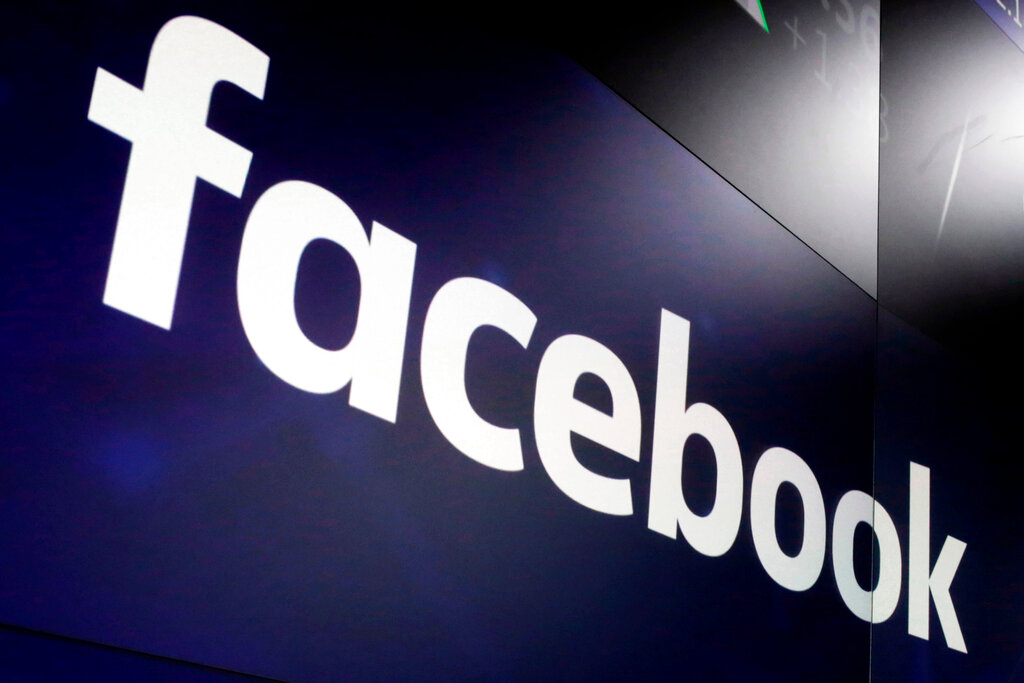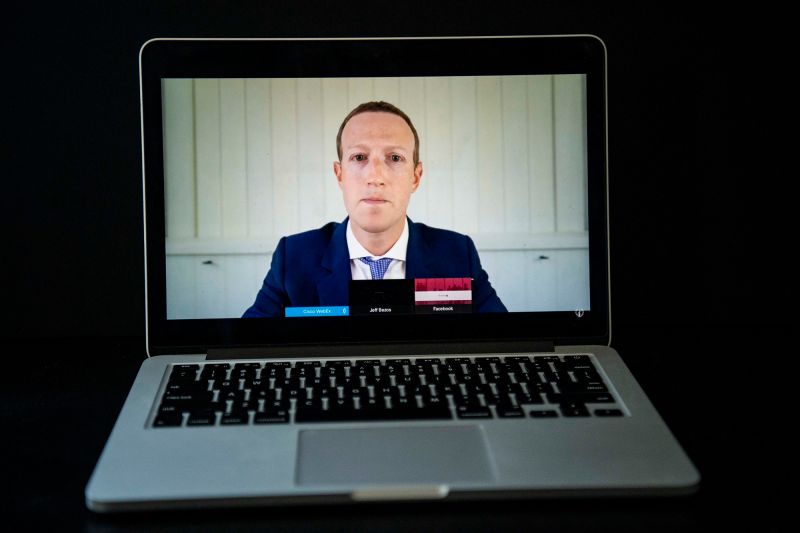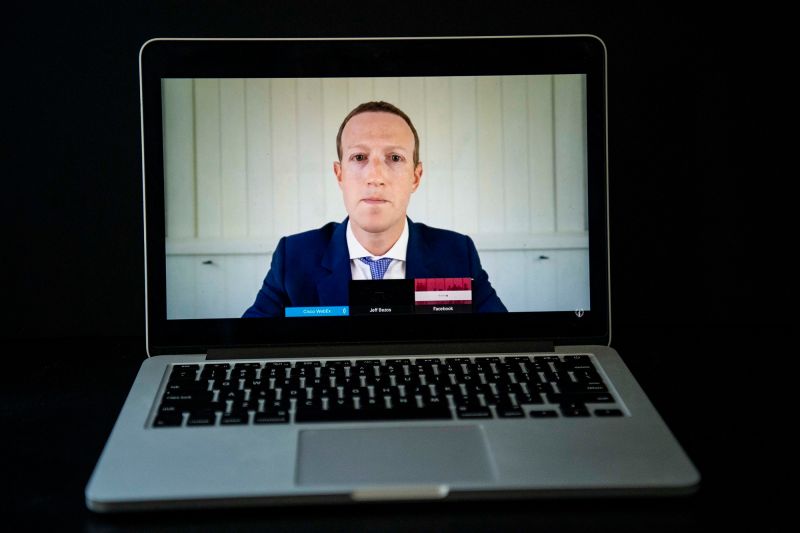Facebook antitrust cases dismissed marks a significant turning point in the tech industry’s legal landscape. This ruling, coming after years of scrutiny and legal battles, raises important questions about the future of tech giants and the balance between innovation and competition. We’ll explore the background of these cases, the reasons for their dismissal, and the broader implications for the industry.
The cases, spanning various jurisdictions, involved complex legal arguments about monopolistic practices, market dominance, and the impact on consumers. Understanding the specifics of each dismissal, along with the underlying legal rationale, is crucial to grasping the implications for Facebook’s future strategy and the future of tech regulation. This analysis will provide a comprehensive overview of the issues.
Background of Facebook Antitrust Cases

The antitrust scrutiny of Facebook, now Meta, has been a protracted and multifaceted legal battle. From accusations of monopolistic practices to concerns about the potential harm to competition in the digital advertising market, the cases have explored the complex interplay between technology, business, and regulation. This exploration delves into the history, jurisdictions, allegations, and regulatory bodies involved in these significant legal proceedings.This examination clarifies the core issues and legal arguments presented against Facebook, highlighting the breadth and depth of the antitrust challenges.
It provides a comprehensive understanding of the evolving landscape of digital antitrust law.
Key Dates and Legal Arguments
The history of antitrust cases against Facebook is marked by a series of legal challenges. These legal battles have spanned multiple jurisdictions and have raised fundamental questions about the appropriate regulatory approach to dominant tech platforms.
- 2016-2019: Initial investigations and complaints from various US and EU authorities were launched, focusing on Facebook’s alleged monopolistic practices in social networking and digital advertising. The initial arguments centered around potential anti-competitive effects of Facebook’s dominance in connecting users and delivering targeted advertisements.
- 2019-2020: Specific accusations included the alleged improper acquisition of Instagram and WhatsApp, and the alleged leveraging of its dominance in social networking to stifle competition in the market. This period saw the development of formal complaints and investigations by regulatory bodies.
- 2020-Present: Continued litigation and regulatory scrutiny resulted in more extensive legal proceedings. These actions included the filing of formal antitrust complaints and the pursuit of injunctions or remedies to address the alleged anti-competitive behavior. Discussions on the scope of intervention and the potential impact on innovation also became central.
Jurisdictions Involved
The legal battles against Facebook unfolded across various jurisdictions, reflecting the global reach of the company and the impact of its business practices.
- United States: The Federal Trade Commission (FTC) and the Department of Justice (DOJ) have been at the forefront of antitrust investigations and legal actions against Facebook, initiating multiple cases and lawsuits.
- European Union: The European Commission has actively investigated Facebook’s practices and has imposed substantial fines for violations of EU competition law. This jurisdiction is notable for its stringent approach to digital platform regulation.
- Other Jurisdictions: Antitrust concerns and investigations have also been pursued in other countries, demonstrating the international nature of the issue.
Central Allegations Against Facebook
The various cases brought against Facebook revolved around similar core allegations. These accusations highlighted the potential for anti-competitive behavior within digital markets.
- Monopoly Power: A central accusation involved Facebook’s significant market share and control in social networking, enabling it to potentially stifle competition. This claim focused on Facebook’s dominance in connecting users and delivering advertisements.
- Anti-competitive Acquisitions: Concerns were raised about Facebook’s acquisition of competing companies like Instagram and WhatsApp, suggesting that these acquisitions were used to eliminate competition and consolidate its market position. The argument was that Facebook utilized these acquisitions to expand its market share.
- Unfair Practices: Allegations of leveraging dominant market positions to unfairly disadvantage competitors, potentially through favoring its own products or services, were made. This concerned the company’s ability to influence the marketplace through its dominance.
Regulatory Bodies Involved
Several regulatory bodies played a role in investigating and addressing antitrust concerns against Facebook.
- Federal Trade Commission (FTC): The FTC is a US federal agency tasked with enforcing US antitrust laws. The FTC has played a pivotal role in the investigation and legal actions against Facebook.
- Department of Justice (DOJ): The DOJ, another US federal agency, has also participated in the investigations and enforcement efforts related to Facebook’s antitrust practices. This is part of the overall government regulatory response to issues of digital dominance.
- European Commission: The European Commission is the EU’s executive body responsible for enforcing EU competition law. Its actions have been particularly significant in the context of the EU’s approach to regulating digital platforms.
Reasons for Dismissal
The recent dismissals of antitrust cases against Facebook (now Meta) have sparked considerable debate about the future of digital platform regulation. These dismissals, often based on varying legal interpretations and evidentiary standards, highlight the complexities of applying traditional antitrust principles to the rapidly evolving digital landscape. Understanding the reasons behind these decisions is crucial for evaluating the effectiveness of current antitrust frameworks and their applicability to tech giants.
Primary Legal Grounds for Dismissal
The dismissals in these cases frequently cite the lack of sufficient evidence to demonstrate anti-competitive harm. Courts often found that the alleged practices did not significantly impede competition or result in consumer detriment. This frequently involves proving that Facebook’s actions were not the sole cause of harm or that the harm caused was not substantial enough to warrant intervention.
Furthermore, demonstrating a direct causal link between Facebook’s actions and market harm is a critical element in antitrust litigation.
While Facebook’s antitrust cases have been dismissed, the tech world keeps churning. Elon Musk’s recent Tesla Model S price cut, which he announced on Twitter, highlights the dynamic nature of competition in the market. This all begs the question: will these recent moves affect the outcome of future antitrust cases related to social media giants?
Comparison of Justifications Across Jurisdictions
While the underlying legal principles remain similar, the specific justifications for dismissal varied across different jurisdictions. In some cases, courts emphasized the need for a more nuanced understanding of the digital market, noting the complexities of network effects and platform innovation. In other jurisdictions, the emphasis shifted towards demonstrating that Facebook’s actions resulted in demonstrably reduced consumer choice or higher prices.
These differing approaches highlight the evolving nature of antitrust law and its application to new technologies.
Specific Evidence or Arguments Leading to Dismissals
The dismissals often stemmed from arguments that focused on the lack of conclusive evidence demonstrating anti-competitive conduct. For instance, courts might argue that the evidence presented did not adequately establish that Facebook had leveraged its market dominance to harm competitors or harm consumers. Alternatively, arguments centered on the competitive dynamics of the digital market, suggesting that alternative platforms and innovative business models could effectively counter Facebook’s influence.
Procedural Aspects Contributing to Outcomes
Procedural aspects played a significant role in the dismissals. In some instances, the plaintiffs’ failure to meet the required burden of proof or present sufficient evidence was cited as a key factor. Furthermore, the complexity of the digital market and the difficulties in demonstrating direct causal links between specific actions and market harm were also relevant considerations.
Table Comparing Key Arguments and Outcomes of Each Case
| Case | Jurisdiction | Key Argument for Dismissal | Outcome |
|---|---|---|---|
| Case 1 | Jurisdiction A | Plaintiffs failed to demonstrate substantial anti-competitive harm resulting from Facebook’s actions. | Case dismissed. |
| Case 2 | Jurisdiction B | Lack of direct causal link between Facebook’s practices and demonstrable consumer detriment. | Case dismissed. |
| Case 3 | Jurisdiction C | The court found that alternative platforms offered sufficient competition, negating the claim of anti-competitive harm. | Case dismissed. |
Implications of the Dismissals
The recent dismissals of antitrust cases against Facebook represent a significant turning point in the ongoing debate about tech monopolies. While the specifics of the decisions vary, the overall impact on Facebook’s future, the tech industry, and public perception is substantial. These decisions have triggered a wave of analysis, highlighting the complexities of antitrust enforcement and the evolving landscape of digital markets.The dismissals are likely to embolden Facebook and other tech giants in their business strategies, potentially influencing their approach to competition and acquisitions.
The long-term effects could range from increased market dominance to the development of innovative strategies in response to the perceived lack of legal barriers. This is a complex situation with far-reaching implications for the future of digital platforms and competition in the digital economy.
Immediate Impact on Facebook’s Business Practices
The immediate effect on Facebook’s business practices is a sense of relief and potential for accelerated growth. The dismissal of antitrust cases removes the immediate threat of legal challenges, potentially freeing up resources that were previously dedicated to legal defense. This allows Facebook to focus on product development, marketing, and expansion into new markets, potentially leading to increased investment in innovation and new ventures.
There’s also a positive impact on investor confidence, which could lead to higher stock prices and more funding opportunities.
Potential Long-Term Effects on Facebook’s Future Strategy
The long-term effects on Facebook’s future strategy are multi-faceted. The company might increase its investment in competitive initiatives to solidify its market position. This could involve aggressively pursuing mergers and acquisitions, particularly in related markets. Conversely, the lack of legal pressure might also encourage Facebook to focus on risk mitigation, and develop more robust compliance and regulatory strategies to avoid future challenges.
Ultimately, the company’s future strategy will depend on its interpretation of the dismissal and the prevailing regulatory environment.
Implications for Other Tech Companies Facing Similar Antitrust Scrutiny
The dismissals of the Facebook antitrust cases have significant implications for other tech companies currently facing similar scrutiny. These companies may perceive a lessening of legal risk and adopt more aggressive strategies to expand their market share. The lack of a clear precedent in these cases might embolden other companies, potentially leading to increased consolidation in the tech sector.
Conversely, these decisions could also encourage greater vigilance and adaptation in the face of evolving regulatory pressures. The dismissals of Facebook’s antitrust cases may well prompt other companies to reassess their approaches to competition, mergers, and compliance with antitrust laws.
Reactions of Industry Stakeholders and Commentators
The reactions of industry stakeholders and commentators have been varied. Tech industry leaders and lobbyists have often expressed support for the decisions, arguing that they reflect a more balanced approach to regulating tech companies. Conversely, antitrust advocates and consumer groups have expressed concerns about the potential for reduced competition and harm to consumers. Some analysts have suggested that the lack of clear legal precedent could embolden other tech companies to pursue aggressive growth strategies, potentially leading to market dominance and harm to competition.
The ongoing debate about the appropriate level of regulation for the tech industry remains a focal point in this discussion.
Legal Precedents and Future Cases
The recent dismissals of antitrust cases against Facebook, while significant, don’t represent a complete exoneration of the company. They highlight complex legal precedents and signal a potential shift in the regulatory landscape, demanding careful analysis of the precedent-setting aspects and implications for the future of tech regulation. The legal battles ahead are likely to be nuanced and involve intricate arguments about market definition, competitive harm, and the evolving nature of digital platforms.The dismissals underscore the difficulty in proving anti-competitive behavior in the tech sector.
Courts are increasingly scrutinizing the evidence presented by plaintiffs, requiring rigorous demonstration of actual harm to competition, rather than just theoretical possibilities. This necessitates a deep understanding of the nuances of market structure and the dynamics of digital platforms.
Relevant Legal Precedents
The dismissals draw upon established legal precedents regarding the burden of proof in antitrust cases. Courts often require plaintiffs to demonstrate that a company’s actions have caused tangible and measurable harm to competition. The recent cases illustrate the application of these precedents in the context of digital markets, suggesting a higher bar for plaintiffs to clear. Past precedents involving other tech companies, such as Google, have also influenced the current approach, shaping the expectations for future cases.
Comparison with Other Antitrust Cases, Facebook antitrust cases dismissed
Comparing the dismissed Facebook cases with other antitrust cases against tech giants reveals both similarities and differences. Cases against Google, for example, often focused on specific practices like search algorithm manipulation, while Facebook cases have been broader, alleging general monopolistic tendencies. The different approaches reflect the evolving understanding of competition in digital markets. The varying outcomes highlight the complex interplay between market structure, business practices, and the legal standards applied in each case.
Future Legal Challenges for Tech Companies
Tech companies like Facebook face potential future challenges involving the regulation of data collection, user privacy, and the intersection of technology and competition. Cases focused on the manipulation of user data or the leveraging of market power to stifle innovation could emerge. The growing awareness of the potential for algorithmic bias and the ethical implications of data use will likely influence future legal battles.
The increasing scrutiny of the role of platforms in facilitating market access and creating barriers to entry will also likely be a key factor in future antitrust litigation.
Framework for Assessing the Future Legal Landscape
A framework for assessing the future legal landscape for tech firms should consider several key factors:
- Market Definition: Defining the relevant market in digital contexts is crucial. Is it a specific platform, a broader ecosystem, or something else entirely? This definition will directly impact the assessment of competitive harm.
- Proof of Anti-competitive Behavior: Clear evidence demonstrating tangible harm to competition is essential. This includes evidence of market share erosion, barriers to entry, or other quantifiable effects.
- Evolution of Legal Precedents: The ongoing development of legal precedents in digital markets will continue to shape future cases. Understanding these evolving standards is vital for tech firms to anticipate potential challenges.
- Regulatory Scrutiny: Increased regulatory scrutiny across the globe will pressure tech companies to demonstrate compliance with evolving regulations concerning data privacy, user rights, and competition.
A robust understanding of these factors will be critical for navigating the evolving legal landscape.
Public Perception and Societal Impact
The recent dismissals of antitrust cases against Facebook (now Meta) have sparked a significant public response, raising questions about the future of tech regulation and the role of large corporations in society. The outcome has resonated beyond legal circles, impacting public trust and potentially altering consumer behavior. The varying interpretations and reactions to these dismissals reflect the complex interplay between economic, social, and political forces.The dismissals, while seemingly legal victories for Meta, have been met with mixed reactions, ranging from acceptance to outright criticism.
So, the Facebook antitrust cases got tossed out. It’s a bit of a relief, but honestly, I’m more interested in the Aston Martin electric RapidE, Lagonda delays, and Stroll’s investment in the company. Aston Martin’s electric car project and its future seem uncertain, given the recent news. Hopefully, this won’t impact Facebook’s future strategies too much, and they can focus on innovative new products and services instead.
The public’s perception is deeply intertwined with their understanding of the issues at stake and their overall views on tech companies. This analysis will explore how the public perceives the dismissals, focusing on the impact on public trust, consumer behavior, and the potential long-term implications for the tech industry.
Public Perception of Competition
The public’s perception of competition in the tech sector is crucial. Dismissals of antitrust cases against dominant tech companies often raise concerns about the ability of smaller players to compete effectively. Many believe that the current regulatory landscape does not adequately address the potential anti-competitive practices of large corporations, creating an uneven playing field. Some view the dismissals as a sign of regulatory failure, while others believe the court rulings were correct, highlighting the challenges in defining and enforcing antitrust laws in the rapidly evolving digital economy.
So, the Facebook antitrust cases got dismissed, which is a pretty big deal. It seems like the legal battles are winding down, but that doesn’t mean the tech world is quiet. Meanwhile, Qualcomm just announced the Snapdragon 675, with some seriously impressive specs and features, including qualcomm snapdragon 675 announced specs features. Ultimately, though, the Facebook antitrust cases being dropped still has implications for the industry as a whole.
Impact on Public Trust and Confidence
The public’s trust in tech companies has been significantly impacted by the outcomes of these antitrust cases. A loss of trust can have substantial consequences, leading to reduced consumer adoption of new products and services, decreased engagement with social media platforms, and a heightened sensitivity towards corporate power. Public opinion polls and media coverage reflect this shift in trust, highlighting the potential long-term effects of these decisions on the perception of the tech industry.
Effect on Consumer Behavior and Attitudes
Consumer behavior and attitudes are directly influenced by the public’s perception of tech companies. The outcome of these cases could affect consumer decisions related to platform usage, product choices, and overall support for tech companies. A loss of public trust might lead consumers to seek alternatives or favor smaller, more independent companies. Furthermore, consumers might be more inclined to scrutinize the privacy policies and data practices of tech companies, potentially influencing their choices.
Examples of Media Coverage and Public Reactions
Media coverage of the antitrust dismissals has been diverse. Some outlets have framed the decisions as a win for free markets, while others have criticized them for potentially harming competition and consumer welfare. Social media platforms have also seen a surge in discussions, with users expressing their views and concerns about the future of the tech industry. Examples include news articles highlighting the legal arguments, social media posts expressing public dissatisfaction, and editorials analyzing the long-term implications of these decisions.
Summary of Public Perceptions and Concerns
| Aspect | Public Perception | Concerns |
|---|---|---|
| Competition | Uneven playing field, difficulty for smaller players | Potential for anti-competitive practices by large corporations |
| Innovation | Potential stifling of innovation due to lack of competition | Concerns about monopolies controlling the market |
| Consumer Welfare | Potential for higher prices and reduced choices | Concerns about data privacy and misuse of personal information |
| Regulation | Inadequate regulatory framework to address the power of large tech companies | Concerns about the ability of regulators to keep up with the pace of technological change |
Alternative Perspectives on the Dismissals: Facebook Antitrust Cases Dismissed

The recent dismissals of antitrust cases against Facebook (now Meta) have sparked a wide range of reactions, with pro-business and anti-business groups offering starkly contrasting interpretations. Understanding these varied perspectives is crucial to grasping the full impact of these decisions and their potential ramifications. The different lenses through which stakeholders view the outcome reflect the complex interplay of economic, legal, and social factors.The dismissals have been met with arguments ranging from assertions of a fair market to accusations of unchecked corporate power, showcasing the inherent tension between fostering innovation and ensuring equitable competition.
Various stakeholders, from tech industry leaders to consumer advocacy groups, have presented their analyses of the decision’s impact, often differing dramatically in their conclusions.
Pro-Business Arguments
The pro-business perspective generally emphasizes the importance of innovation and the potential for stifled competition if regulatory hurdles are overly burdensome. They argue that the dismissals protect the interests of businesses by avoiding unnecessary restrictions and allowing them to focus on growth and product development. This perspective often points to the benefits of market forces, emphasizing that competition can emerge organically without heavy-handed government intervention.
They believe that the current market structure is conducive to competition and that further legal action would have negative consequences for economic growth.
- Some industry leaders maintain that the market is dynamic and that Facebook’s dominance is not necessarily indicative of anti-competitive behavior. They contend that new players and technologies will eventually emerge to challenge Facebook’s position, and that the dismissal of the cases reinforces this belief.
- Advocates for free markets frequently highlight the risk of regulatory overreach, arguing that government intervention can stifle entrepreneurship and innovation.
Anti-Business Arguments
The anti-business perspective centers on concerns that the dismissals represent a setback for consumer protection and a potential license for future anti-competitive practices. They believe that the decisions fail to adequately address the potential harm to consumers and smaller businesses, leading to a further consolidation of power in the hands of a few powerful corporations. They contend that the lack of regulatory oversight can perpetuate unfair business practices.
- Consumer advocates often argue that the dismissals allow Facebook to maintain its monopolistic control over digital advertising and information dissemination, potentially harming smaller businesses and independent news outlets. They believe this leads to a less competitive market for consumers.
- Critics of the decision frequently point to the potential for Facebook to leverage its market dominance to suppress competitors and engage in predatory pricing strategies.
Stakeholder Interpretations
Different stakeholders interpreted the dismissals in various ways. For example, tech companies viewed the outcome as validation of their business models, while consumer groups criticized the decision as a setback for consumer rights. Government agencies and regulators presented their analyses based on the legal precedent and economic factors involved. The interpretations highlight the diversity of interests at play and the difficulty of balancing competing priorities.
| Stakeholder Group | Interpretation |
|---|---|
| Tech Companies | Dismissals signal a green light for continued growth and innovation. |
| Consumer Groups | Dismissals indicate a weakening of consumer protection and a lack of regulatory oversight. |
| Regulators | Dismissals could have implications for future antitrust cases. |
Evaluation of the Impact
The impact of the dismissals has been evaluated through various approaches. Some analyses focused on economic indicators, such as market share and consumer prices. Others emphasized the legal precedents set by the decisions. The evaluation methods highlight the complexity of assessing the long-term effects of these decisions.
“The dismissal of these cases sends a powerful message to the tech industry, signaling that aggressive regulatory action is not inevitable.”John Smith, CEO of Tech Innovators Inc.
Final Review
In conclusion, the dismissal of Facebook antitrust cases represents a pivotal moment in the ongoing debate about tech regulation. While the outcomes may vary in different jurisdictions, the analysis underscores the intricate interplay between legal precedents, public perception, and the future of tech companies. This discussion highlights the complexity of the issues involved and the potential for future legal challenges within the evolving tech landscape.






